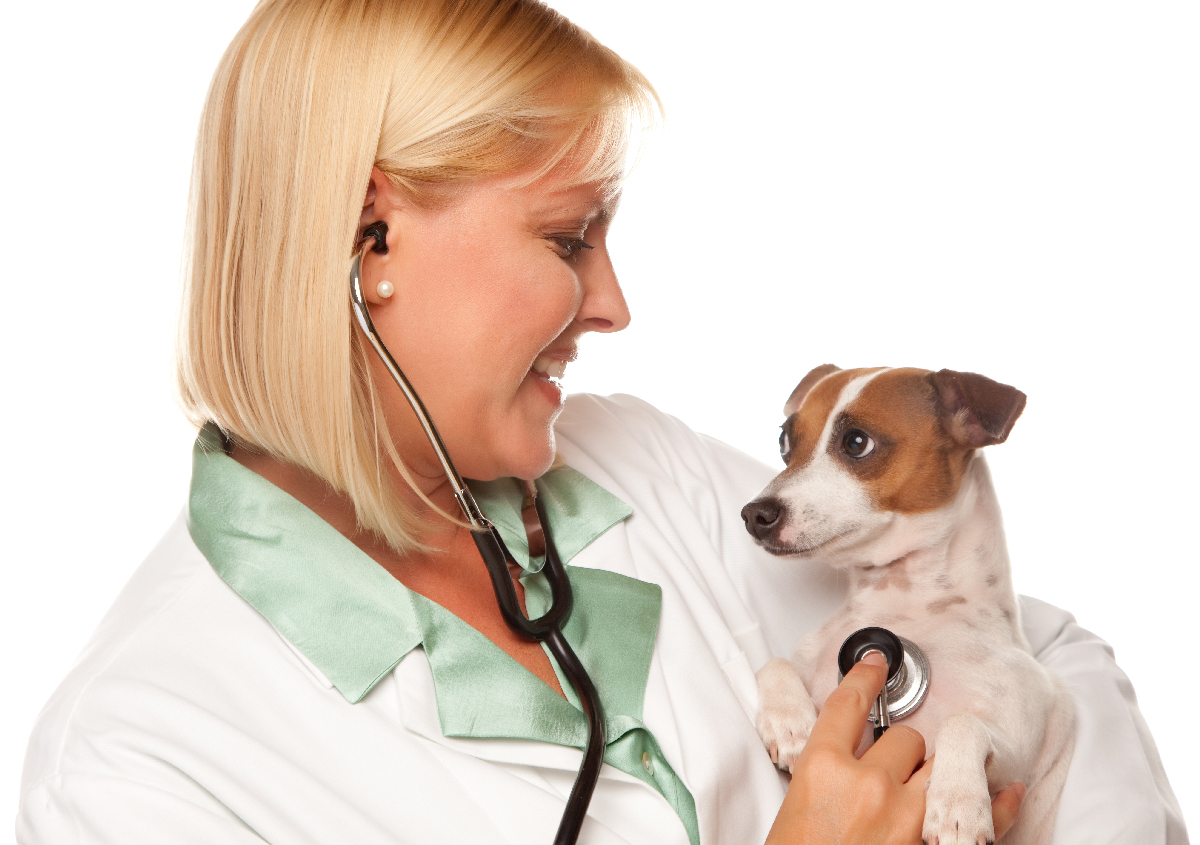When Should You See a Board Certified Veterinary Cardiologist for Your Pet?}
Wiki Article
Checking Out the Necessary Solutions Used by a Veterinary Cardiologist: Comprehending Ultrasound and CT Scan Techniques
Vet cardiologists play an essential function in the health and wellness of animals by identifying and treating numerous heart problems. They use sophisticated imaging techniques, such as heart ultrasound and CT scans, to give exact examinations. Each technique has its distinct benefits and applications. Comprehending these techniques is essential for pet dog proprietors looking for the most effective care for their friends. What aspects should animal owners consider when picking between these analysis devices?
The Function of Vet Cardiologists in Pet Healthcare
Veterinary cardiologists play a vital role in the healthcare of family pets, concentrating specifically on diagnosing and treating heart-related conditions. They possess specialized training that allows them to interpret complicated analysis examinations and determine different cardio concerns. These specialists make use of innovative methods, such as echocardiography and electrocardiography, to examine heart feature and framework accurately.Veterinary cardiologists likewise establish tailored treatment plans that may include medicines, way of life adjustments, and, in some instances, medical interventions. Their proficiency encompasses educating animal proprietors concerning heart wellness, highlighting the relevance of routine examinations and early detection of potential issues. Cooperation with general veterinarians is vital, as it assures thorough look after animals with thought cardiac concerns. By using specialized services, vet cardiologists substantially improve the high quality of life for animals and provide tranquility of mind for their proprietors, reinforcing the value of heart health and wellness in overall pet dog wellness.Typical Heart Problems in Animals
Usual heart issues in pets can significantly impact their health and wellness and lifestyle. Heart murmurs, numerous sorts of cardiomyopathy, and hereditary heart issues are amongst the most common conditions that veterinarians encounter. CT Scans For Animals. Understanding these concerns is vital for pet owners to assure timely medical diagnosis and appropriate treatmentHeart Murmurs in Pets
Heart murmurs can be a resource of concern for animal proprietors, they are not constantly indicative of severe wellness issues. A heart murmur is an abnormal noise created by stormy blood flow within the heart. In family pets, these whisperings can be brought on by various elements, consisting of genetic heart defects, valve problems, or perhaps stress and anxiety throughout examinations. Numerous family pets with heart whisperings lead regular lives without substantial health impacts. To identify the underlying cause, veterinary cardiologists commonly use analysis strategies such as echocardiograms and Doppler ultrasounds. Early discovery and assessment are important, as they may help handle any type of prospective cardiac problems efficiently. Animal owners are motivated to consult their veterinarian for an extensive examination if a heart whispering is found.Cardiomyopathy Kind Explained
Cardiomyopathy includes a group of diseases affecting the heart muscle, resulting in compromised cardiac feature in pet dogs. One of the most typical types include dilated cardiomyopathy (DCM), hypertrophic cardiomyopathy (HCM), and limiting cardiomyopathy (RCM) DCM largely impacts canines, causing the heart to enlarge and weaken, which reduces its capability to pump blood efficiently. In contrast, HCM is more widespread in felines, defined by the thickening of the heart wall surfaces, commonly leading to obstructed blood circulation. RCM, though much less typical, happens when the heart muscle becomes inflexible, limiting its ability to loaded with blood. Each type presents one-of-a-kind obstacles in diagnosis and treatment, necessitating specialized vet cardiological examination to guarantee peak monitoring and look after affected pets.Hereditary Heart Problems
Hereditary heart issues represent a considerable classification of heart problems in pets, unique from acquired problems such as cardiomyopathy - Cancer Veterinary Near Me. These flaws are structural problems present at birth, influencing the heart's normal function. Usual types include license ductus arteriosus, ventricular septal problems, and pulmonic constriction. Symptoms may differ extensively, ranging from moderate to extreme, and can include exercise intolerance, coughing, and trouble breathing. Early diagnosis with sophisticated imaging strategies like ultrasound is necessary for reliable administration. Vet cardiologists play an important function in recognizing these problems and recommending suitable therapy alternatives, which might include medical administration or medical treatment. Identifying congenital heart problems enables far better end results and enhanced lifestyle for impacted family petsRecognizing Heart Ultrasound: Just How It Works
A significant number of veterinary methods now use cardiac ultrasound as a crucial analysis device for evaluating heart health in animals. This non-invasive technique uses high-frequency sound waves to create photos of the heart's structure and function. Throughout the treatment, a vet professional uses a gel to the pet's upper body and makes use of a transducer to produce ultrasound waves. These waves bounce off the heart and surrounding frameworks, creating real-time photos on a monitor.Veterinarians can analyze numerous elements of cardiac health, including chamber dimension, wall surface movement, and valve function. Additionally, heart ultrasound enables the discovery of irregularities such as fluid accumulation and congenital heart issues. This strategy is crucial for identifying conditions that might not be noticeable with basic radiographs. By providing detailed details regarding the heart's composition and performance, heart ultrasound aids in formulating reliable treatment plans for pets experiencing heart illness.The Significance of CT Checks in Identifying Heart Conditions
Just how do CT scans improve the diagnosis of heart problems in vet medicine? CT scans offer in-depth cross-sectional photos of the heart and bordering structures, permitting vets to picture intricate anatomical partnerships. This imaging technique is specifically beneficial in determining congenital heart flaws, cardiac lumps, and abnormalities in capillary. By utilizing sophisticated imaging formulas, CT scans can evaluate heart chamber dimensions and function, using an extensive sight that may be tough to achieve with standard methods.Additionally, CT angiography can visualize blood flow and recognize areas of constriction or blockage, which is vital for intending potential interventions. The rate and accuracy of CT scans also assist in fast diagnoses, crucial in emergency situation situations. Eventually, the unification of CT checks into veterinary cardiology substantially enhances the accuracy of diagnoses, allowing targeted therapy strategies and improving client results for pets suffering from heart disease.Comparing Ultrasound and CT Scan Methods
While both ultrasound and CT scans are invaluable tools in veterinary cardiology, they provide unique benefits and constraints that influence their use in identifying heart disease. Ultrasound, or echocardiography, gives real-time imaging of the heart's structure and function, allowing veterinarians to analyze heart chambers, shutoffs, and blood flow. It is especially reliable for evaluating problems like coronary infarction and cardiomyopathy. Ultrasound might be restricted in picturing specific anatomical structures due to client size or obesity.In contrast, CT scans deal thorough cross-sectional photos of the heart and bordering tissues, making them perfect for identifying architectural problems, lumps, or vascular problems. CT scans give detailed understandings, they need sedation and may entail radiation visit homepage direct exposure. Eventually, the option between ultrasound and CT scans depends on the specific scientific scenario, the person's condition, and the details required for an accurate medical diagnosis.Treatment Options Offered Through Vet Cardiology
Veterinary cardiology uses a variety of therapy choices customized to deal with numerous heart conditions in pets. Treatment strategies typically begin with way of life modifications, including diet regimen modifications and workout adjustments, intended at improving general heart wellness. Medications play an essential role, with cardiologists recommending medicines such as diuretics, beta-blockers, and ACE preventions to boost and manage signs heart function.In much more serious instances, interventional procedures, such read as balloon valvuloplasty or stent placement, might be necessary to ease clogs or improve blood flow. For sure congenital heart problems, surgical alternatives might be explored to fix architectural issues. Additionally, continuous surveillance and follow-up treatment are essential elements of a thorough treatment plan, enabling for prompt changes based upon the pet dog's response to therapy. In general, veterinary cardiology concentrates on supplying reliable, customized treatment to maximize the health and well-being of animal patients with heart conditions.Exactly how to Prepare Your Animal for a Cardiac Assessment
Preparing a family pet for a cardiac examination is vital to guarantee accurate results and a smooth procedure. Proprietors need to initially set up the visit with the veterinary cardiologist and talk about any type of particular requirements or issues. It is recommended to withhold food for a minimum of 12 hours before the analysis, as this aids improve imaging high quality during treatments like ultrasound or CT scans.Additionally, keeping a calm environment on the day of the appointment can aid lower the family pet's stress and anxiety. It is useful to bring along any type of relevant clinical documents, consisting of previous tests and drugs (CT Scans For Animals). Owners should additionally make sure that their animal is comfortable and leashed throughout transport to the clinic. Acquainting themselves with the examination process can help and relieve concerns in asking educated concerns throughout the assessment. By adhering to these steps, proprietors can contribute considerably to the effectiveness of the cardiac analysisOften Asked Inquiries
How Lengthy Does a Heart Ultrasound or CT Scan Take?
The period of a heart ultrasound usually varies from 30 to 60 minutes, while a CT scan might take approximately 15 to half an hour. Variables such as the patient's condition can affect these time quotes.
Are There Any Dangers Connected With These Diagnostic Procedures?

Can I Remain With My Animal During the Procedure?
The vet center's plan normally dictates whether animal owners can continue to be throughout procedures. While some centers encourage owner visibility for comfort, others may call for splitting up to ensure safety and ideal problems for analysis imaging.Just how much Do These Diagnostic Tests Typically Price?
The expenses of diagnostic examinations, such as ultrasound and CT scans, typically vary based upon place and facility. Commonly, rates range from a few hundred to over a thousand bucks, showing the complexity and innovation involved.
What Is the Recuperation Process After a Heart Examination?
The recovery procedure after a cardiac evaluation entails keeping an eye on the pet for any kind of immediate responses, guaranteeing convenience, and restricting physical activity. Vets commonly supply post-evaluation directions to lead family pet owners during this crucial healing period. Heart murmurs, useful site numerous types of cardiomyopathy, and genetic heart flaws are amongst the most prevalent problems that vets come across. A heart whispering is an abnormal noise generated by turbulent blood flow within the heart. Cardiomyopathy incorporates a team of conditions affecting the heart muscle, leading to compromised heart feature in family pets. Genetic heart issues stand for a substantial category of heart problems in family pets, distinctive from gotten problems such as cardiomyopathy. Ultrasound, or echocardiography, supplies real-time imaging of the heart's structure and feature, permitting veterinarians to evaluate heart chambers, valves, and blood flow.Report this wiki page